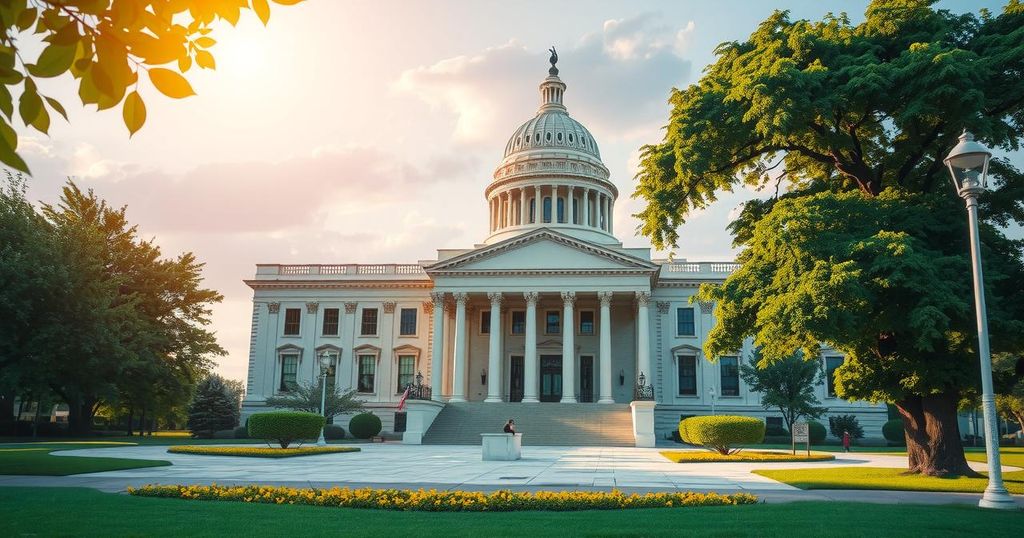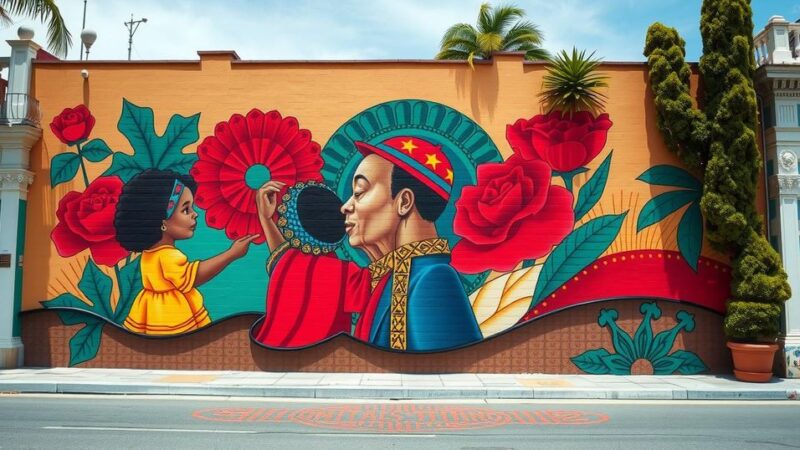Mozambique’s new president, Daniel Chapo, was inaugurated amid unrest following disputed election results. Allegations of fraud led to violent protests, with opposition leader Venancio Mondlane vowing to disrupt the new government. Chapo faces pressure to promote unity and address governance issues in the aftermath of significant civil unrest that has resulted in over 300 deaths.
Mozambique’s newly inaugurated President Daniel Chapo took his oath of office in Maputo amid significant security measures, following weeks of violent protests over disputed election results. Chapo, aged 48, continues the rule of the Frelimo party amid allegations from opposition candidate Venancio Mondlane that the elections were fraudulent, leading to unrest that has reportedly resulted in over 300 fatalities. In his oath, Chapo committed to promoting national unity, human rights, and democracy.
On the eve of the inauguration, Mondlane threatened to initiate daily protests to disrupt the new government, having already called for a national strike leading up to the ceremony. Mondlane, popular among the youth, insists the recent elections were manipulated in Frelimo’s favor. He stated, “This regime does not want peace,” and declared his commitment to ongoing demonstrations, regardless of potential governmental repercussions.
In response, President Chapo called for stability, urging collective efforts to develop the nation. Observers have noted irregularities in the elections, with the EU criticizing the alteration of results. Notably, the inauguration saw a lack of foreign dignitaries, indicating hesitance to recognize Chapo’s victory according to analysts.
Maputo experienced heavy security, with roads blocked around key locations during the events. While the assembly inauguration was relatively calm, unrest continued with reported violence leading to casualties in various regions, raising concerns over the government’s handling of the situation. Civil society reported over 300 deaths attributed to unrest post-election.
Looking ahead, speculation exists that Chapo might seek to minimize unrest by including opposition members in his upcoming government appointments. Dialogue has been suggested, although Mondlane has not been included in initial discussions. However, Chapo has expressed willingness to converse with Mondlane, who recently returned to Mozambique following threats against him.
The political landscape in Mozambique remains tense following the disputed election results. The Frelimo party, which has maintained power since the country’s independence in 1975, faces significant opposition as allegations of electoral fraud persist. The unrest has been exacerbated by increasing civilian casualties and violent demonstrations, raising questions about governance and public order. As Mozambique grapples with these challenges, the newly sworn-in president, Daniel Chapo, faces immense pressure to navigate this complex political situation while promoting stability and unity within the nation.
In conclusion, Mozambique’s political climate is precarious following Daniel Chapo’s inauguration amidst violent protests and claims of electoral fraud. The unrest post-elections has resulted in substantial fatalities, prompting urgent calls for peace and stability. President Chapo must address these challenges effectively, potentially by incorporating opposition voices into his government to foster dialogue and mitigate unrest. The emergence of a collaborative political approach may be essential for restoring public trust and order in Mozambique.
Original Source: www.victoriaadvocate.com






